3.10 DNA Sequencing
Process of determining exact order of nitrogenous bases is called DNA sequencing
In July 2000, two major American labs working on Human Genome Project (HGP) announced that 99% of our genes had been sequenced
HGP uses an automated process based on Sanger Dideoxy
Method to sequence DNA
Utilizes process of DNA replication
Five components are needed for this technique:
A single stranded DNA template (to be sequenced)
Radioactively labeled DNA primer
DNA polymerase
Nucleoside triphosphates
Radioactively labeled dideoxy analogues
Step 1
DNA to be sequenced is treated so that it becomes single stranded (single stranded DNA template)
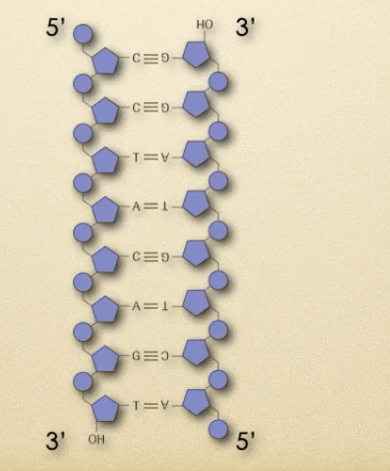
Step 2
Short, single stranded radioactively labeled primer is added to 3’ end of DNA template
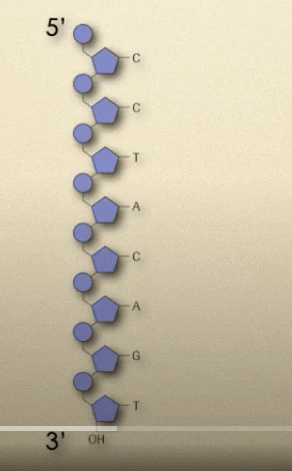
Step 3
Thousands of identical copies of “primed DNA template” are placed in 4 reaction tubes
Each contains DNA polymerase and all four nucleoside triphosphates (dATP, dGTP, dCTP and dTTP)
Small amount of a different radioactively labeled dideoxy analogue (either ddATP, ddGTP, ddCTP or ddTTP)
 Step 4
Step 4
Double stranded fragments that form in 4 reaction tubes are separated by length (using gel electrophoresis)
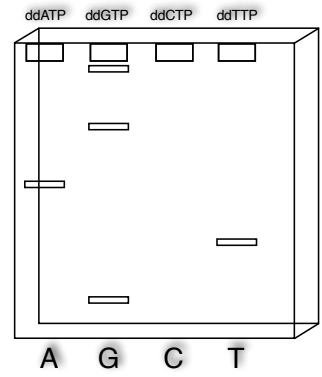 Step 5
Step 5
Pattern of bands formed on an autoradiogram can be used to decipher sequence of DNA template
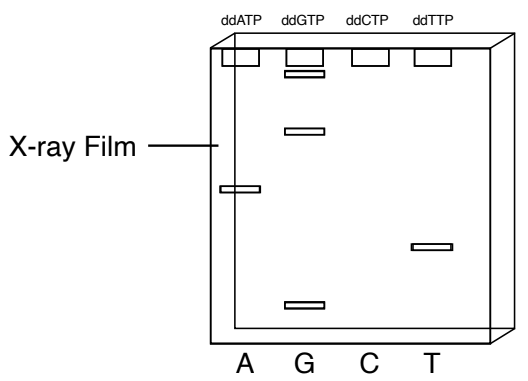 Dideoxy analogues differ from normal nucleoside triphosphates in that they are missing an -OH group on 3’carbon of their sugar units
Dideoxy analogues differ from normal nucleoside triphosphates in that they are missing an -OH group on 3’carbon of their sugar units
Dideoxy analogues are radioactively labeled
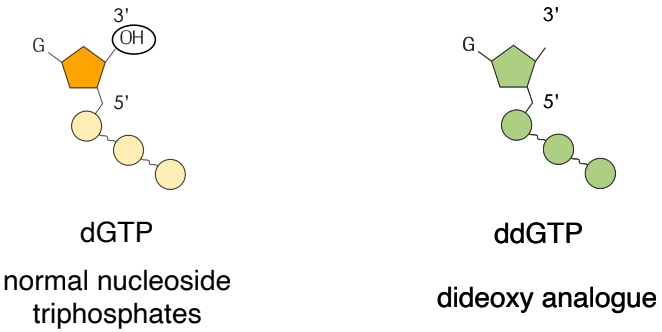 As a result of missing -OH group, DNA polymerase cannot join next nucleotide to dideoxy analogue
As a result of missing -OH group, DNA polymerase cannot join next nucleotide to dideoxy analogue
DNA replication stops when a dideoxy analogue added
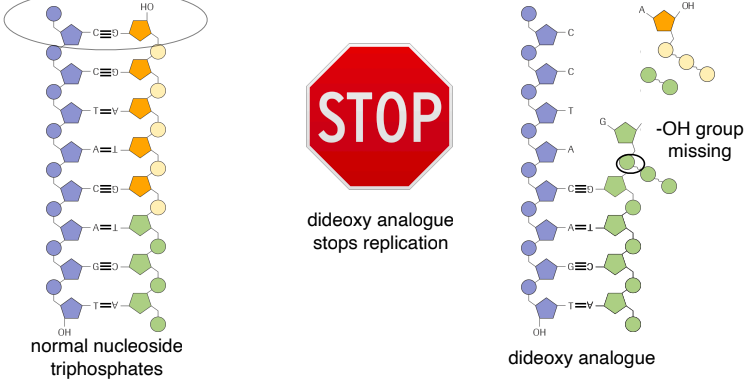 Dideoxy analogues act as a chain terminator whenever it joins to DNA template
Dideoxy analogues act as a chain terminator whenever it joins to DNA template
Since only a small fraction of available nucleotides in each reaction tube are dideoxy analogues, different lengths of double stranded DNA will form before chain termination occurs
Reaction vessel that contains ddGTP, would produce these fragments of double stranded DNA:
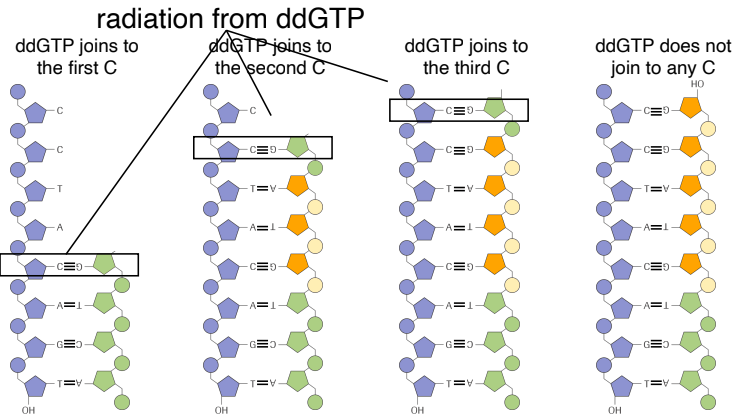 Running results of all four reaction tubes on same gel results in a pattern that can be used to determine sequence of DNA template
Running results of all four reaction tubes on same gel results in a pattern that can be used to determine sequence of DNA template
Sequence can be read from an autoradiogram
APPLICATION QUESTION FOR TEST
MULTPLE CHOICE WILL AS ABOUT THE PROCESS
what is dd(nucleotide)
what is the cause
what is the point of process
bulk is next part of process
Sequence shown on autoradiogram is compliment of DNA template
The data shown is the complimentary strand
name the complimentary strand
name the template strand
for the test
only questions 1-19
cloning is NOT on the test
process where you have tot do something (gel electrophoresis,, pcr, transcription and translation)
only ask more in multiple choice
draw meselson-stahl
copare pcr and dna replication
WILL BE ON TEST: write out dna replication
what type of mutation